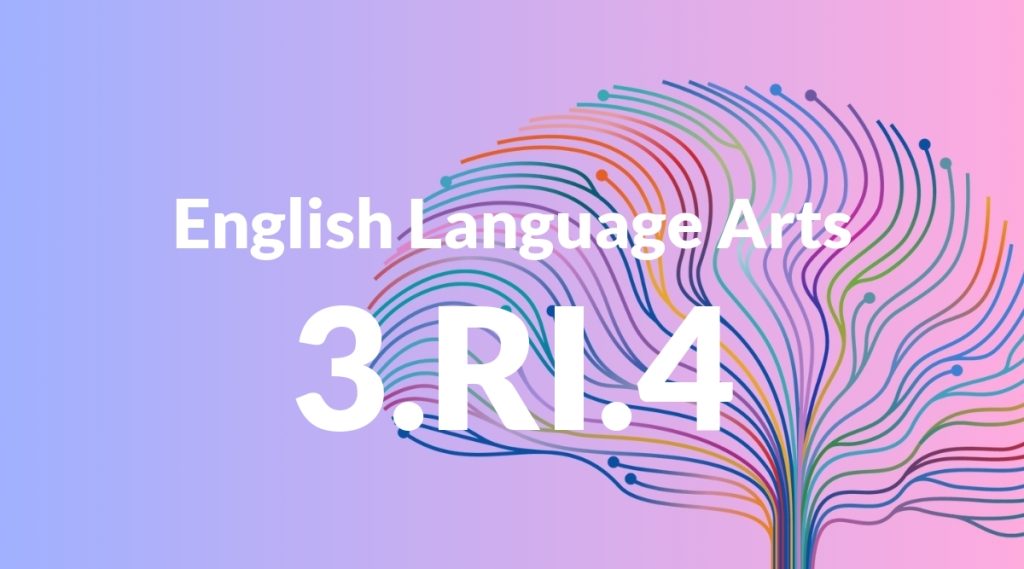Standard: 3.RI.4 – Determine the meaning of general academic and domain-specific words and phrases in a text relevant to a grade 3 topic or subject area.
Grade level: Grade 3
Subject: English Language Arts
Domain: Reading: Informational Text
Teacher Overview
This standard focuses on helping students determine the meaning of general academic and domain-specific words and phrases in a text. This skill is crucial as it enhances students’ comprehension and ability to engage with a variety of texts relevant to their grade level. Mastery of this standard will support students in all subject areas by enabling them to understand and use subject-specific vocabulary effectively. Students should be familiar with basic vocabulary and how to use context clues to determine the meaning of unknown words.
After mastering this standard, students will be able to understand and use more complex vocabulary and phrases in various subject areas, enhancing their comprehension and communication skills.
Common Misconception 1
A common misconception is that all words can be understood by looking them up in a dictionary. This is incorrect because dictionaries may not always provide the context needed to fully understand how a word is used in a specific text.
Intervention 1
Encourage students to use context clues and analyze word parts, such as prefixes and suffixes, to infer the meaning of unfamiliar words. This strategy helps them become more independent readers.
Common Misconception 2
Another misconception is that academic and domain-specific words are only relevant in textbooks. This is incorrect because these words are also used in real-world contexts, such as news articles, instructions, and everyday conversations.
Intervention 2
Provide students with examples of how academic and domain-specific words are used in various real-world contexts. This can include reading news articles, following written instructions, and discussing everyday topics.
Prerequisite Knowledge
Students should be familiar with basic vocabulary and how to use context clues to determine the meaning of unknown words.
Subsequent Knowledge
Students will develop the ability to understand and use more complex vocabulary and phrases in various subject areas, enhancing their comprehension and communication skills.
Instructional Activities
- Vocabulary scavenger hunt in informational texts
- Context clues worksheets
- Prefix and suffix matching games
- Reading and discussing news articles
- Interactive read-alouds with a focus on vocabulary




